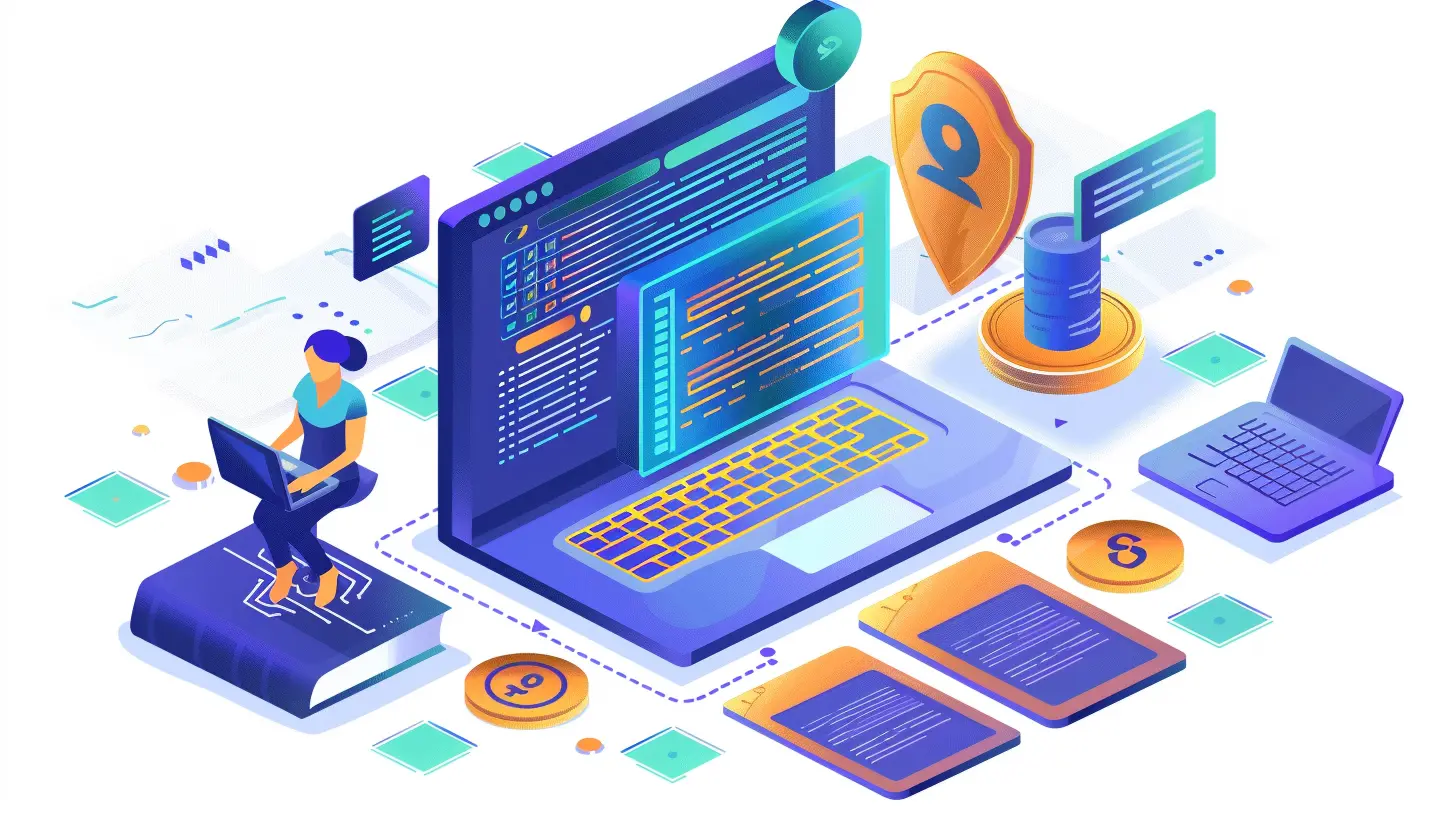Safeguarding Your Financial Privacy: Legal Guidelines to Follow
10 May 2025
In today's digital world, protecting your financial privacy is more important than ever. Cybercriminals, data breaches, and even government overreach can threaten your sensitive financial information. Whether you're shopping online, managing investments, or simply handling your personal finances, knowing the legal guidelines to follow can help you stay one step ahead.
This article will walk you through the best legal practices to safeguard your financial privacy while keeping your money safe. 
Why Financial Privacy Matters
Your financial information is more valuable than you think. From identity theft to fraud, criminals can use your financial details to drain your bank account, open unauthorized credit lines, or even steal your identity.But beyond criminals, big corporations, governments, and even advertisers are tracking your spending habits. Ever notice how you search for a product and suddenly see ads for it everywhere? That’s because your financial activity is being monitored and often shared.
So, how do you keep your financial life private? Here’s what the law says and how you can use it to your advantage. 
Legal Frameworks Protecting Your Financial Privacy
There are multiple laws and regulations designed to protect your financial information. Knowing them can help you take action when needed.1. The Gramm-Leach-Bliley Act (GLBA)
The GLBA requires financial institutions to explain how they share your data and gives you the right to opt out of certain data-sharing practices.📌 What You Can Do:
- Always read a financial institution’s privacy policy.
- Opt out of data-sharing whenever possible.
- Use financial institutions that prioritize customer privacy.
2. The Fair Credit Reporting Act (FCRA)
This law ensures that your credit reports are accurate and private. You have the right to dispute errors and limit how your credit information is shared.📌 What You Can Do:
- Check your credit report regularly (you’re entitled to one free report per year from AnnualCreditReport.com).
- Dispute any errors immediately.
- Place a fraud alert if you suspect identity theft.
3. The Right to Financial Privacy Act (RFPA)
This law protects your financial records from government access without a valid subpoena or warrant.📌 What You Can Do:
- Be cautious about sharing financial information with government agencies.
- Understand your rights before complying with any financial data requests.
4. The Electronic Communications Privacy Act (ECPA)
This law protects your personal and financial information from unauthorized electronic surveillance.📌 What You Can Do:
- Use encrypted financial apps and messaging services.
- Avoid sharing sensitive financial data over public Wi-Fi. 
How to Legally Protect Your Financial Privacy
Understanding legal protections is great, but what can you do on a practical level? Here are some steps to ensure your financial privacy remains intact.1. Use Strong Passwords and Two-Factor Authentication (2FA)
Your first line of defense is a strong password. Weak passwords are like leaving your front door unlocked for thieves.✅ Tips for Better Security:
- Use a mix of letters, numbers, and symbols.
- Enable 2FA on all financial accounts.
- Use a password manager for added security.
2. Keep Your Financial Transactions Private
Not everything needs to be shared. Whether it’s social media or public Wi-Fi, always be mindful of where and how you access your financial details.✅ What to Avoid:
- Sharing financial transactions on social media.
- Using public Wi-Fi for banking.
- Entering financial details on unsecured websites.
3. Freeze or Lock Your Credit When Not in Use
A credit freeze prevents anyone from opening new credit in your name, while a credit lock offers similar protection with more flexibility.✅ How to Do It:
- Contact major credit bureaus (Experian, Equifax, and TransUnion) to freeze your credit for free.
- Use a credit lock if you need quick access to credit but still want protection.
4. Be Wary of Phishing Scams
Scammers are getting smarter, and phishing scams are a major threat to financial privacy.🚨 Signs of a Scam Email or Call:
- Urgent or threatening language.
- Requests for personal or financial details.
- Suspicious links or attachments.
✅ What to Do:
- Never click on unknown links.
- Verify requests by contacting the company directly.
- Report potential scams to authorities. 
Protecting Your Financial Privacy in the Digital Age
Digital banking and online transactions make life easier, but they also expose your financial data to greater risks.1. Use a Virtual Private Network (VPN)
A VPN encrypts your internet traffic, making it harder for hackers to intercept your financial data.✅ Best Practices:
- Always connect to a VPN when handling financial transactions online.
- Avoid free VPNs, as they often track and sell your data.
2. Limit the Information You Share With Apps and Websites
Many apps request access to your financial data without needing it.✅ What to Do:
- Only grant permissions that are absolutely necessary.
- Regularly review app permissions and adjust them.
3. Secure Your Financial Documents
Your financial statements, tax returns, and personal records are goldmines for identity thieves.✅ How to Protect Them:
- Store important financial documents in a safe or encrypted digital vault.
- Shred sensitive paper documents before disposing of them.
Your Rights and Legal Recourse if Your Privacy is Violated
Despite taking all precautions, violations of financial privacy can still happen. If your data has been compromised, you need to act fast.1. File a Complaint with Regulatory Authorities
If a financial institution mishandles your data, report them to the Consumer Financial Protection Bureau (CFPB) or the Federal Trade Commission (FTC).2. Consider Legal Action
If your financial privacy has been severely breached, consult a consumer rights lawyer to explore your options. Some violations can lead to lawsuits and compensation.3. Monitor Your Accounts for Suspicious Activity
Stay vigilant about unexpected transactions or notifications. The sooner you detect fraud, the quicker you can act to minimize damage.Final Thoughts
Financial privacy isn’t just about avoiding scams or identity theft—it’s about maintaining control over your personal financial life. Laws exist to safeguard your financial information, but ultimately, the best protection comes from being proactive.By following the legal guidelines and best practices outlined in this article, you’ll reduce the risk of falling victim to fraud, scams, and invasive data collection. Stay informed, stay cautious, and keep your financial world as private as possible.
all images in this post were generated using AI tools
Category:
Legal ProtectionsAuthor:

Uther Graham
Discussion
rate this article
6 comments
Susan McManus
This article brilliantly highlights the importance of protecting our financial privacy. In today’s digital age, understanding legal guidelines is vital for safeguarding sensitive information. Thank you for shedding light on such an essential topic for everyone!
May 18, 2025 at 2:48 AM

Uther Graham
Thank you for your thoughtful comment! I'm glad you found the article informative and timely. Protecting financial privacy is indeed crucial in today's digital landscape.
Zayla Clark
In a digital age, safeguarding financial privacy is essential for autonomy and trust in transactions.
May 14, 2025 at 10:23 AM

Uther Graham
Absolutely! Protecting financial privacy is crucial for maintaining autonomy and ensuring trust in all transactions.
Finnian McMurtry
This article highlights essential legal steps to enhance financial privacy—an often overlooked necessity today.
May 13, 2025 at 2:50 AM

Uther Graham
Thank you! I'm glad you found the article useful in addressing the importance of financial privacy.
Harper McKale
This article highlights essential legal guidelines for protecting financial privacy, a critical yet often overlooked aspect of personal finance. It serves as a valuable reminder to stay informed about laws and practices that safeguard our information, ensuring we can manage our finances with confidence and security.
May 12, 2025 at 1:01 PM

Uther Graham
Thank you for your thoughtful comment! I'm glad you found the article helpful in emphasizing the importance of financial privacy and staying informed about legal protections.
Lysara McGovern
This article highlights crucial legal guidelines for protecting financial privacy. Understanding these regulations is essential for individuals to safeguard their sensitive information and maintain control over their financial data. Great insights!
May 11, 2025 at 7:52 PM

Uther Graham
Thank you for your thoughtful comment! I'm glad you found the insights valuable for protecting financial privacy.
Angie Campbell
Protecting your financial privacy is crucial in today’s digital world. By following the legal guidelines outlined in this article, you empower yourself to safeguard your assets and ensure peace of mind. Take charge of your financial future today!
May 10, 2025 at 10:47 AM

Uther Graham
Thank you for your insightful comment! I completely agree—taking proactive steps to protect financial privacy is vital in our digital age.




